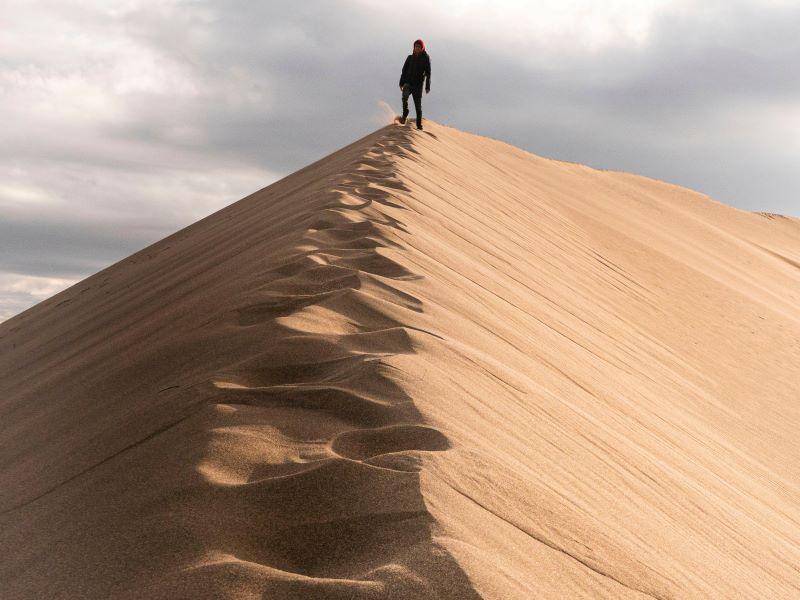
Developing a growth mindset and experimenting for better teaching outcomes
Key Details
This video will cover:
00:27 Why a willingness to experiment in teaching is important
01:38 Developing confidence and a growth mindset
02:55 The need for research into the psychology of positive teaching
Transcript
I'm delighted to have the opportunity to talk to you about my experiences in teaching. I want to focus on the idea that mindset and experimentation can be really powerful tools.
I want to reflect on how taking risks and pushing ourselves out of our comfort zone to experiment with teaching methods can lead to positive and powerful changes in delivering education.
There is a rapid change in innovative teaching mechanisms as a result of Covid. How we deal with this rate of change may impact on teaching experiences. For example, I recently brought the beach to the campus. Because of restrictions we weren’t able to use minibuses and were only allowed minimal practical opportunities. I couldn’t get the students to the beach for their ecology session, so next thing I knew I was unloading buckets of seaweed, crabs and critters from my car.
That moment in time when students really saw what I was prepared to do, they might have been able to feel my vulnerability. But how can we ask students to step out of their comfort zone to undertake new things if we don’t make space to do this for ourselves?
So where does the notion of experimenting with teaching ideas come from? Is it about having all the latest equipment and digital staff development or does it come from mindset and confidence?
I remember some time ago watching a talk by John Hunter titled “Teaching with the World Peace Game”. His sense of adventure, risk-taking and genuine student-centred experiences really inspired me. My beach at the campus session was definitely an adventure. Was I worried about it? Yes, but there is always time in any curriculum plan to undo something that didn't work.
Confidence, I think, comes from really trusting your students and developing bonds by dialogue and teaching actions. In a way, it’s about trusting that if you fall, they will catch you.
My next tale is adventures in GoPro land. You definitely have to feel confident to strap a GoPro to yourself and record your practical sessions.
When I experimented with recording practical sessions to create an inclusive experience for those students isolating, together we actually uncovered a solution to an age-old issue that nobody really takes decent notes when on field trips.
We realised that we could deepen the experience of doing the field work by combining the doing with recording the theory discussed during the sessions.
I’m a big believer in Dweck’s theory of growth mindset. The belief that your basic qualities are things you can cultivate through your efforts.
I think perhaps this is the most powerful force for innovation, and experimentation and confidence are outputs from this growth mindset. Dweck’s definition of enabling learning by embracing mistakes and developing perseverance is central in the teaching experiences that I try to develop.
I don’t really view myself as innovating, it’s more problem-solving. And I think it’s important still to be mindful of standards and performance indicators but also find space for things to perhaps not be quite perfect.
So to conclude, I believe we need more research into the psychology of positive teaching innovations. The teacher is really the key to implementing successful sessions, but research still tends to focus on the student experience and less on enabling the teacher.
A willingness to experiment and take positive risks can be a really powerful tool in the creation of effective staff development. So by challenging our own mindset and belief structure, I really truly believe that we can get even more creative in our teaching.
This video was created by Catherine Seeds, programme team leader for wildlife and conservation management at SRUC (Scotland’s Rural College).
She has been shortlisted for Most Innovative Teacher of the Year at the Times Higher Education Awards 2021. A full list of shortlisted candidates can be found here; the winners will be announced at a ceremony on 25 November.
Academics and university leaders from across the UK and Ireland will come together at THE Campus Live UK&IE to talk about institutional strategies, teaching and learning, the student experience and more. Join us for this two-day event in London.


